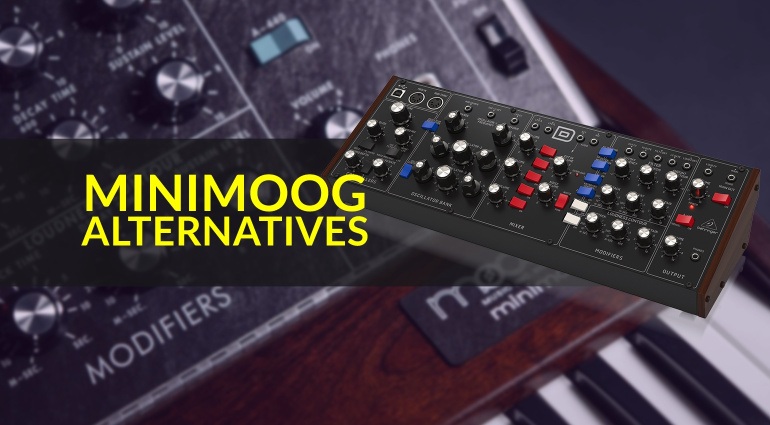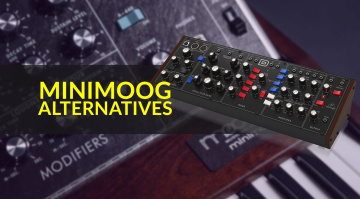The sound of the miniMoog is a distinctive rich tone that leaps out of your speakers at you. We’ve selected some of the best miniMoog Alternatives for recreating authentic leads and basslines.
We’ve discussed how to do this using software plug-ins previously, but for many of us software can often be too clinical to capture the experience of using the real thing.
First introduced in back 1970, the miniMoog Model D was one of the first synthesizers to feature a pitch wheel. It took most of the basic functionality from Moog’s massive modular systems of the time and rescaled the architecture for a new compact format.
The Best miniMoog Alternatives
Although they were doubtful at first, the miniMoog’s designers created an interface that quickly became the blueprint for analogue subtractive monophonic synthesizers, which is still very much celebrated today.
From compact desktop units to full keyboards, there is a wide variety of Moog-style synths available. Let’s take a closer look at our selection, hopefully, we’ve got something for everyone.
Behringer Model D
Affectionately referred to as “The Original” by AudioPilz, the Behringer Model D has quickly become one of the most popular synth clones around. It captures all the hallmarks of the vintage Model D and doesn’t sound half bad for the price you’re paying.
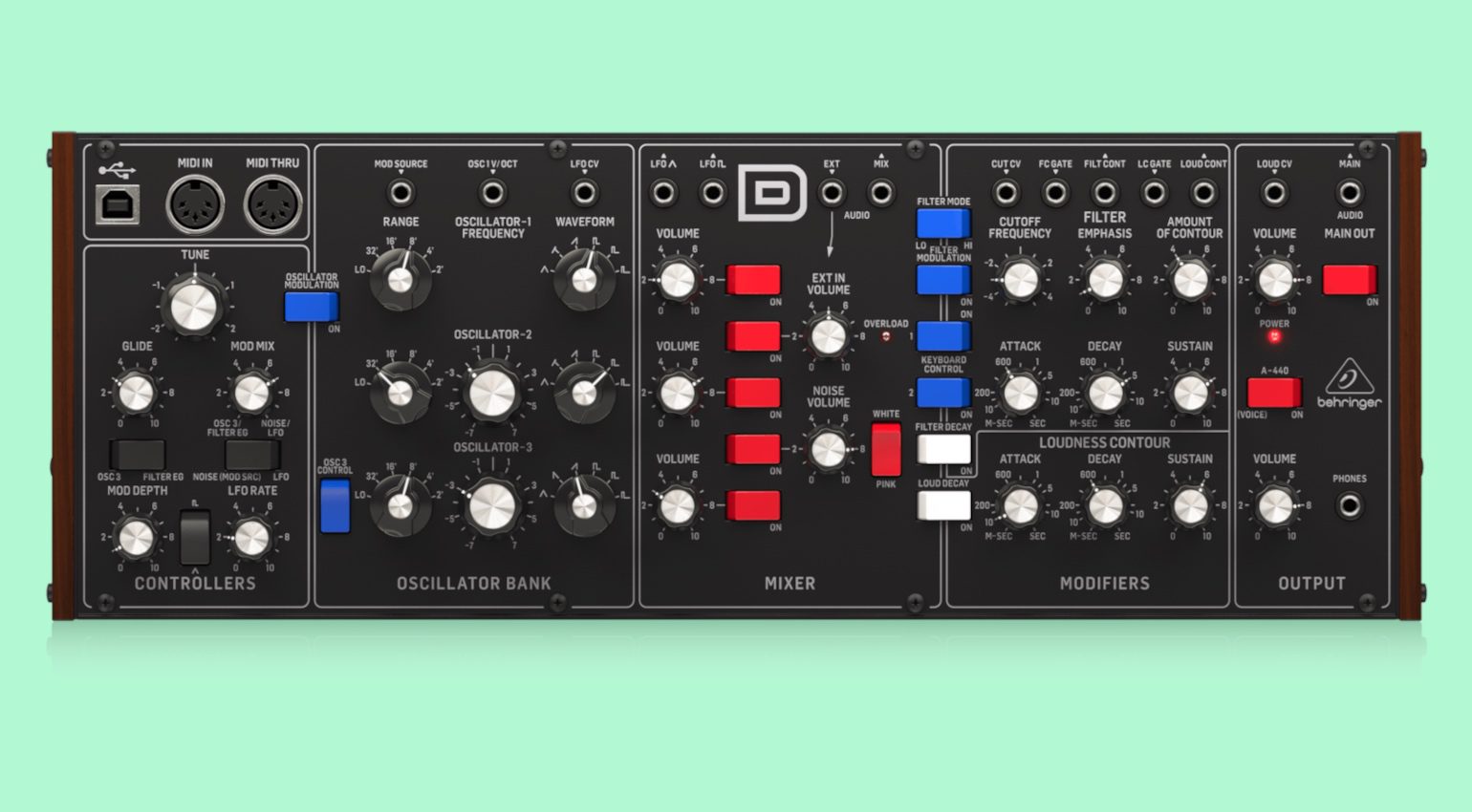
The Boog also offers features like MIDI, and poly-chaining. In addition, you have plenty of ways to link it with your modular synth rig with the CV I/O and the ability to mount its 70 HP frame into a Eurorack casing.
Vermona Mono Lancet ’15
Although it’s a relatively basic design, the Mono Lancet ’15 has plenty of character and it’s capable of producing sounds that range from the sweetest melodic vintage tones to raw noxious mayhem and anything in between.
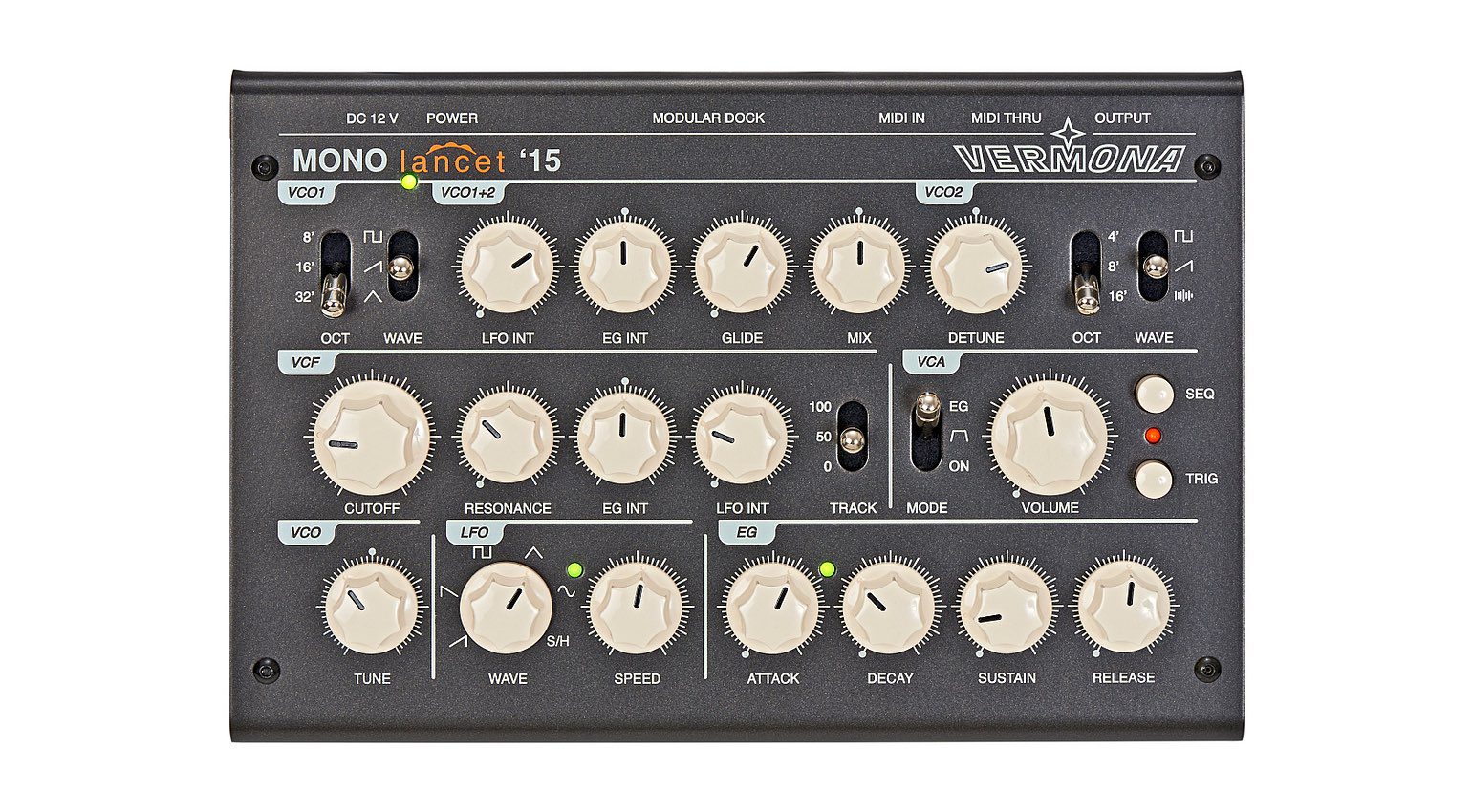
The Mono Lancet ’15 is equipped with 2 Oscillators, a 24dB/8ve filter, an envelope, and a single LFO. This allows you to quickly shape new sounds from scratch without requiring a lab coat or even much of a background in synthesis.
Moog Grandmother
Although it’s rather pricey for such a simple synth, the Moog Grandmother is nevertheless one of the best-value instruments that the esteemed manufacturer has ever created.
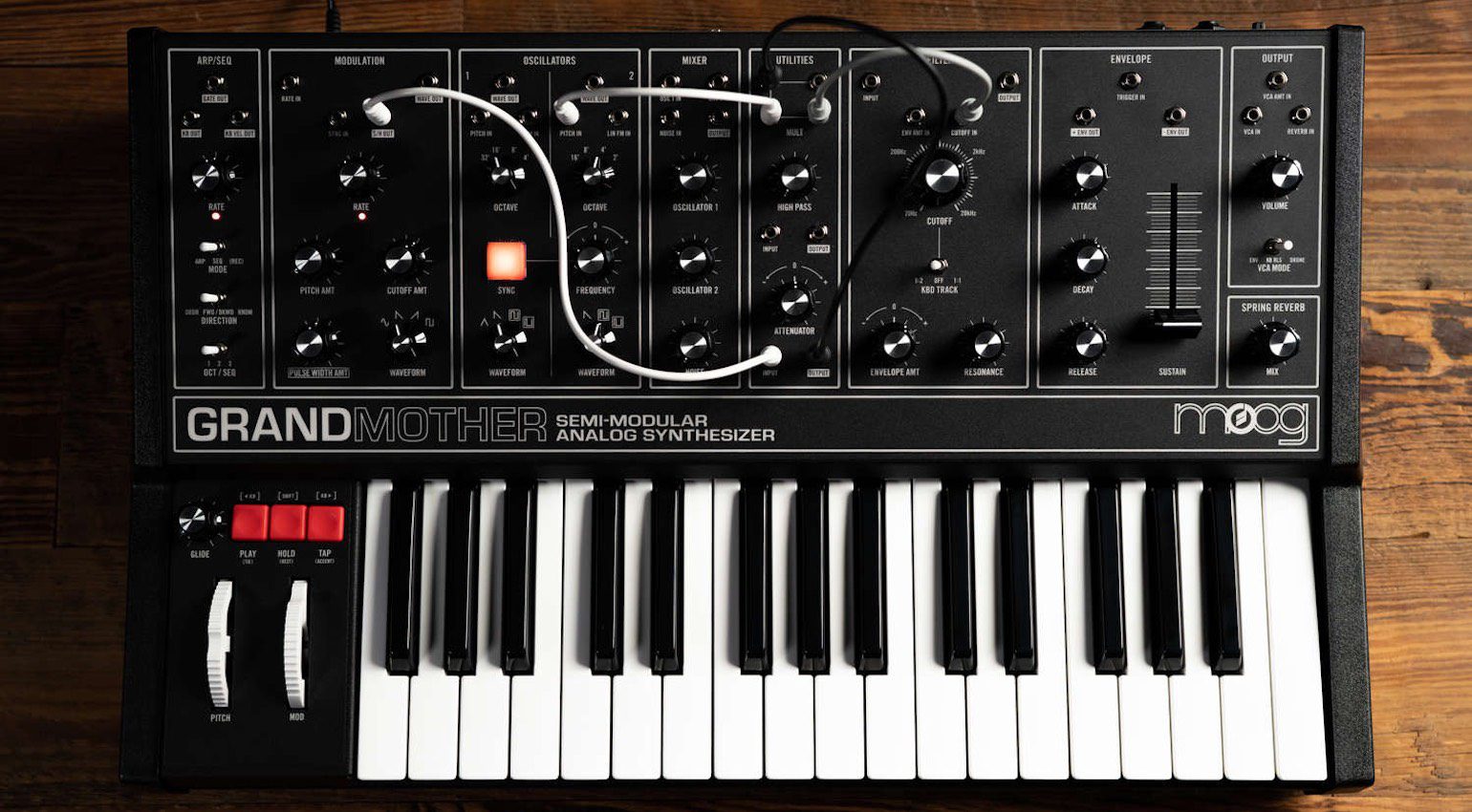
It certainly has the classic Moog sound and excels at creating Bass sounds, while the slightly different architecture and semi-modular expandability provides the platform for new creative freedom.
Moog Subsequent 37
The Subsequent 37 could almost be described as the flagship workstation that evolved from the Little Phatty series of monophonic synths. From the multimode envelopes to the extensive modulation section, each aspect has been expanded for versatility.
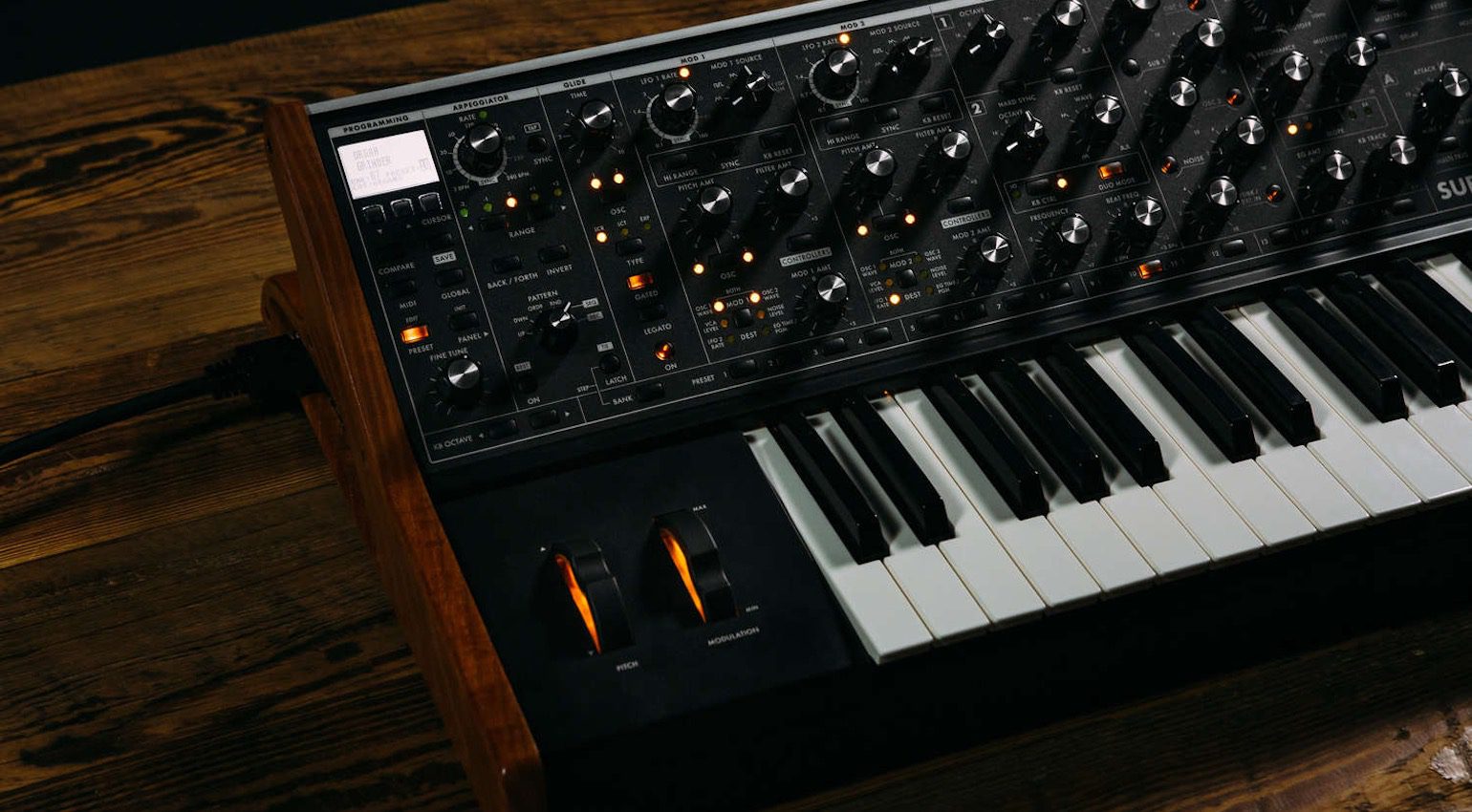
In addition, the keyboard has aftertouch and it offers duophonic operation. So when you add the sequencer or arpeggiator into the mix it widens the scope of sounds you can create, becoming a central aspect of your setup rather than a one-trick pony.
Minimoog Model D
The Model D was reissued once more last year, continuing the legacy of the iconic monosynth. Instead of glide and decay control inputs, the 2022 Model D has an LFO rate control knob right next to the pitch and mod wheels, which is a nice touch.
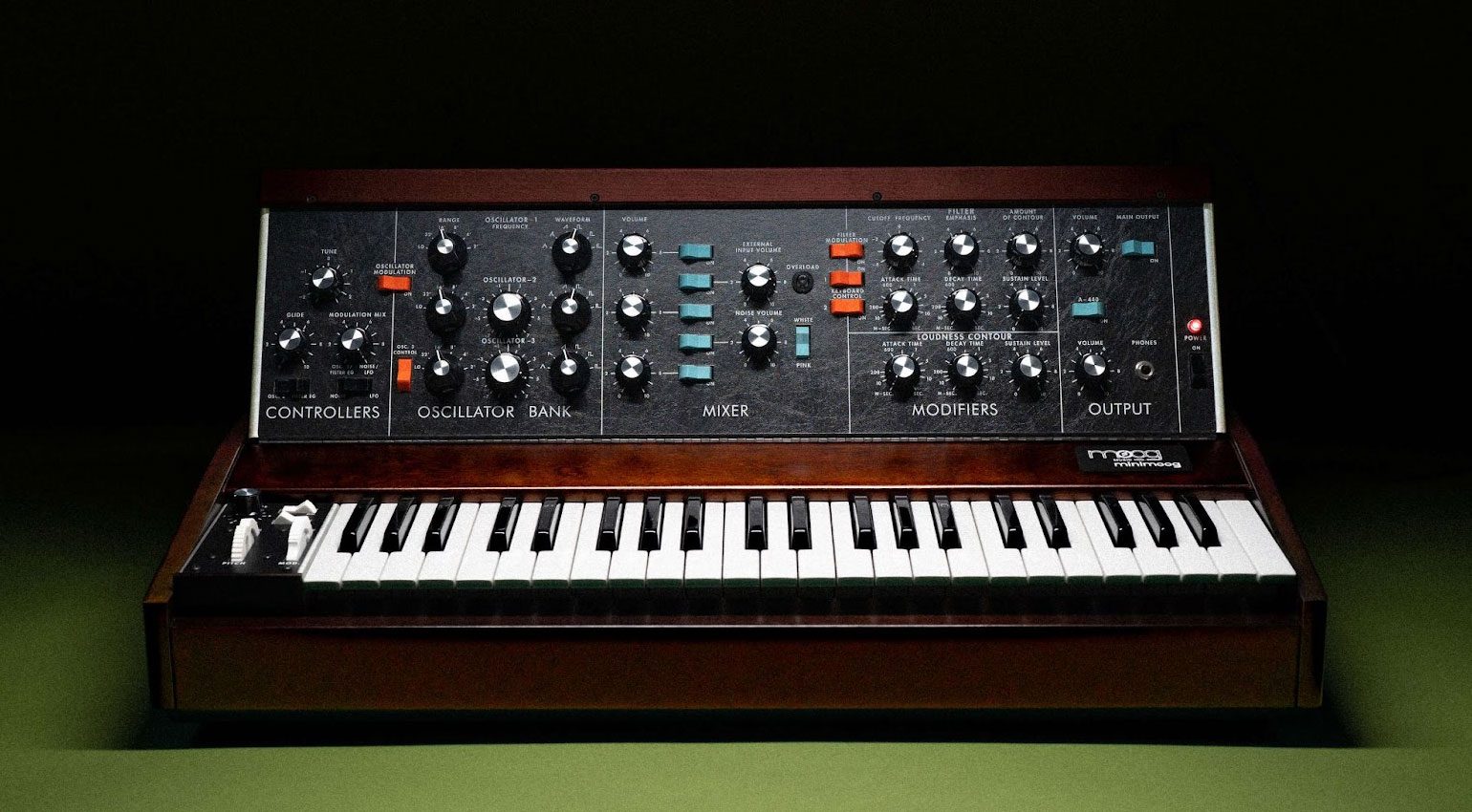
In addition, there are two switches in the Controllers section that allow you to alternate between OSC 3/FILTER EG and NOISE/LFO with the Modulation Mix control. The price is unbelievable, but still around half the price of a vintage Model D.
There are other synths that are also capable of producing Moog-style goodness like the Korg Monologue and the Roland SE-02.
More about the Best miniMoog Alternatives:
Videos:
*This post contains affiliate links and/or widgets. When you buy a product via our affiliate partner, we receive a small commission that helps support what we do. Don’t worry, you pay the same price. Thanks for your support!
Image Sources:
- Behringer Model D: Behringer
- Vermona Mono Lancet ’15: Vermona
- Moog Grandmother: Moog
- Moog Subsequent 37: Moog
- Minimoog Model D: Moog Music

